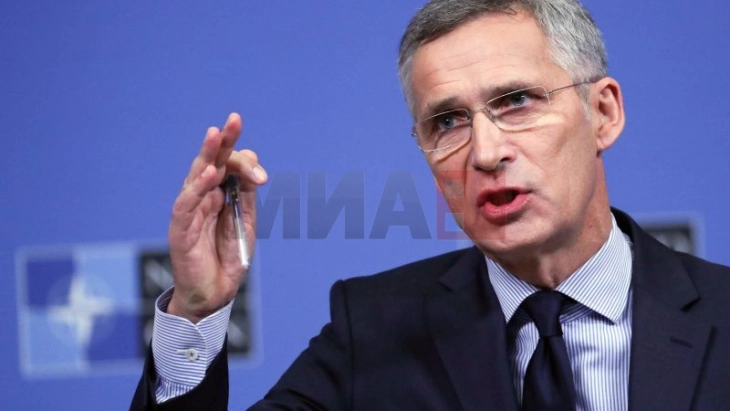NATO confirms troop increase in Kosovo as lawmakers call for calm
- Post By Magdalena Reed
- 21:33, 30 May, 2023

Brussels, 30 May 2023 (dpa/MIA) — NATO plans to deploy hundreds more soldiers to Kosovo after 30 members of its KFOR unit were injured in violent clashes, the alliance tweeted on Tuesday.
Currently about 3,800 troops of the NATO-led protection force KFOR are stationed in Kosovo.
"We have decided to deploy 700 more troops from the operational reserve force for Western Balkans," NATO Secretary General Jens Stoltenberg said at a press conference in Oslo on Tuesday evening.
NATO will also "put an additional battalion of reserve forces on higher readiness, so they can also be deployed if needed," he added, calling these "prudent steps to ensure that KFOR has the forces and capabilities it needs to fulfil its mandate."
He did not give exact numbers but a battalion usually consists of several hundred soldiers.
His comments came as Serbians in northern Kosovo held a renewed protest after violent clashes between Serb militants and KFOR.
Demonstrators gathered in front of the municipal offices in Zvečan, Leposavić and Zubin Potok, which are secured by NATO-led KFOR troops, the Kosovan news portal koha.net reported, whose reporters were present.
The latest protest came after clashes in Zvečan on Monday afternoon when KFOR troops used tear gas to disperse a crowd that had turned violent.
The local population, which is almost exclusively Serb, were expressing their anger at the installation of new mayors from Albanian parties. The elections had been boycotted by almost all Serbs, and turnout was just 3.5%.
The militant Serbs threw incendiary devices, stones and bottles at the international forces.
Thirty KFOR soldiers, including 19 Hungarians and 11 Italians, suffered injuries, including broken bones and burns, the force said on Tuesday morning.
According to the hospital in the nearby town of Mitrovica, 53 Serbs were injured.
Commander of the KFOR mission, Division General Angelo Michele, "stressed that the unprovoked attacks on NATO units are unacceptable and KFOR will continue to fulfill its mandate impartially," the statement added.
"Such attacks are totally unacceptable" the alliance's Deputy Secretary General Mircea Geoana said in Brussels, adding that the "violence must stop immediately."
The European Union's top diplomat, Josep Borrell, said that the bloc "condemns in the strongest terms the violence in the north of Kosovo" of the past few days.
"Violent acts against citizens, against media, against law enforcement and KFOR troops are absolutely unacceptable," he said, as they lead "to a very dangerous situation."
Borrell called on the leaders of Kosovo and Serbia to de-escalate tensions and restore calm in northern Kosovo.
"I expect [the] Kosovo authorities to suspend [the] police operation, focusing on the municipal buildings in the north of Kosovo, and the violent protesters to stand down," he added.
"We have too much violence in Europe already today. We cannot afford another conflict," Borrell said, adding that he hopes he will be listened to.
Kosovo Prime Minister Albin Kurti blamed neighbouring Serbia for the riots. The demonstrators in the north were for the most part "a bunch of extremists under the guidance of Belgrade," he said late on Monday evening.
EU representatives and foreign ministries of five Western governments already condemned the initial deployment of Kosovo police in Zvečan on Friday.
The police used teargas to quell the clashes after militant Serbs in three northern Kosovar municipalities attacked Kosovar police officers trying to gain access to municipal offices.
The Serbs were trying to prevent new mayors from taking office in the municipalities of Zvečan, Leposavić and Zubin Potok after Serbian residents boycotted their election the previous month.
The new mayors come from Albanian parties.
Kosovo, now almost exclusively inhabited by Albanians, declared independence in 2008. Serbia has not recognized it as a separate state.







